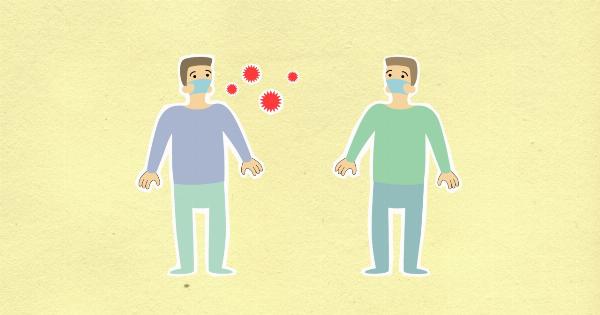Pneumonia is a common lung infection that can be caused by a variety of microorganisms such as bacteria, fungi, viruses or other germs.
It can affect people of all ages, but it is more common in younger children, older adults, and people with weakened immune systems. In this article, we will explore the transmission, symptoms, and treatment of pneumonia.
Transmission
Pneumonia can be transmitted through several ways. Some of the ways include:.
- Airborne droplets from infected persons
- Contagious contact with surfaces contaminated with the pneumonia-causing agents
- Aspiration of food, saliva, or vomit into the lungs
- Close contact with animals that carry the disease
Symptoms
The signs and symptoms of pneumonia vary from person to person, and depending on the cause of the infection. They may include:.
- Cough that produces mucus
- Shortness of breath or rapid breathing
- Chest pain
- Fever and chills
- Fatigue and weakness
- Nausea, vomiting, or diarrhea
- Loss of appetite
- Headache
- Sweating and shaking
It is important to note that some people may not exhibit any symptoms of pneumonia even though they carry the microorganism that causes it.
Treatment
The treatment of pneumonia usually depends on the cause of the infection, the age of the patient, and the severity of the symptoms. Some of the treatment options may include:.
- Antibiotics for bacterial pneumonia
- Antiviral drugs for viral pneumonia
- Anti-fungal medication for fungal pneumonia
- Cough medicine to alleviate the cough
- Fever and pain medicine
- Supplemental oxygen therapy
- Rest and hydration
It is important for patients to complete the full course of the prescribed medication to ensure complete recovery. In severe cases, hospitalization may be required for close monitoring of the patient’s condition.
Prevention
Preventing pneumonia can be achieved through several ways:.
- Wash your hands frequently and thoroughly to prevent the spread of germs
- Avoid close contact with people who have respiratory infections
- Stay up-to-date on vaccinations such as flu and pneumococcal vaccines
- Quit smoking and avoid exposure to secondhand smoke
- Eat a healthy and balanced diet to strengthen the immune system
- Exercise regularly to boost overall health and immunity
Proper hygiene is the most effective way to prevent the spread of pneumonia. Cover your mouth and nose when coughing or sneezing to prevent the spread of germs.
Conclusion
Pneumonia is a serious respiratory infection that can cause significant health problems if untreated. It is important to seek medical attention if you experience any of the symptoms.
Proper prevention measures such as proper hygiene and vaccinations can go a long way in preventing the spread of this disease. Always maintain a healthy and active lifestyle and avoid close contact with infected persons to reduce your risk of contracting this disease.


























